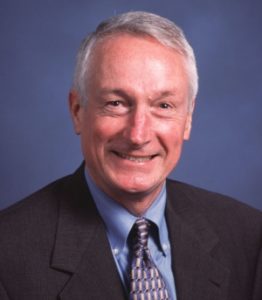Owen J. Furuseth is the retired Associate Provost for Metropolitan Studies and Extended Academic Programs and a Emeritus Professor of Geography at University of North Carolina at Charlotte. He earned his B.A. and M.A. at East Carolina University and Ph.D. from Oregon State University.
Owen Furuseth considers himself an engaged scholar. That is to say, his research interests are applied and focused on community problems that affect the way we live and work in communities. A primary focus of his work examines immigrant receptivity in Charlotte, and, more generally North Carolina. This work looks at neighborhood change and service provision associated with Latino immigration. In 2006, he co-edited with Dr. Heather Smith, the book, Latinos in the New South: Transformations of Place (Ashgate). Owen served two terms on the Board of Directors of Charlotte’s Latin American Coalition. He was also a member of the 2014 Mayor’s Immigrant Integration Task Force.
Dr. Furuseth is a research team member with the Mecklenburg Area Partnership for Primary-care Research (MAPPR). MAPPR is a research group, housed within the Department of Family Medicine at Carolinas HealthCare System. It is committed to working with community members to enhance healthcare outcomes in the Latino immigrant community and low income neighborhoods in the city. MAPPR utilizes the community-based participatory research model.
Since 2015, Owen and his colleagues at the UNC Charlotte Urban Institute have been working with Mecklenburg County, the City of Charlotte, and the Foundation for the Carolinas on efforts to address the findings of the Harvard Economic Mobility Research Project. Receiving extensive national media coverage in the summer of 2013, this study found that the Charlotte region ranked last among the 50 largest metros in the United States for providing intergenerational economic opportunity to residents. The city and county have appointed a Citizens Task Force to study this complex issue and recommend policies to enhance economic opportunity for the future. The local Latino immigrant community is deeply affected by complex barriers restricting economic mobility.





